Search results for: 'Hepatitis A infection can be diagnosed based solely on its unique clinical symptoms.'
- Related search terms
- can i add graphics card to my laptop if it's not present at the time of buy
- can I claim my son as a dependent if hes 19 and a part time student
- can i apply for a tnvs without driver's license
- Can you get the Redmagic 11 Pro in the U.S.
- can i make an assemply then edit a part
-
 Prevention to Recovery: The Best of Thomas "Hollywood" HendersonSpecial Price $249.00 Regular Price $349.00The overview of the entire film collection of the inspirational and enigmatic Thomas "Hollywood" Henderson is now available exclusively through FMS. If you own just one or two of Henderson's films, this program will allow you to have a piece of his entire body of work. Learn More
Prevention to Recovery: The Best of Thomas "Hollywood" HendersonSpecial Price $249.00 Regular Price $349.00The overview of the entire film collection of the inspirational and enigmatic Thomas "Hollywood" Henderson is now available exclusively through FMS. If you own just one or two of Henderson's films, this program will allow you to have a piece of his entire body of work. Learn More -
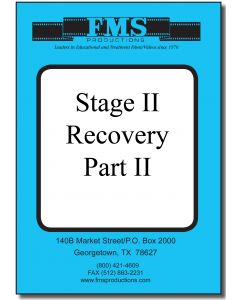 Stage II Recovery Series: Part 2 Identifying Self-Defeating BehaviorsSpecial Price $149.00 Regular Price $200.00The theme of this section is "what you live with you learn, what you learn you practice, what you practice you become, what you become has consequences." Learn More
Stage II Recovery Series: Part 2 Identifying Self-Defeating BehaviorsSpecial Price $149.00 Regular Price $200.00The theme of this section is "what you live with you learn, what you learn you practice, what you practice you become, what you become has consequences." Learn More -
 La Bebida Mas Cara (The Most Expensive Drink)Special Price $199.00 Regular Price $224.00Spanish speaking Learn More
La Bebida Mas Cara (The Most Expensive Drink)Special Price $199.00 Regular Price $224.00Spanish speaking Learn More -
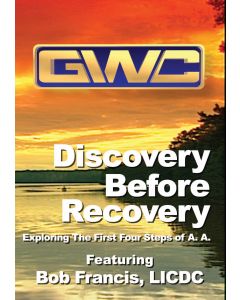 Discovery Before RecoverySpecial Price $224.00 Regular Price $299.00Filmed at the Stella Maris Recovery Center in Cleveland, Ohio, Discovery Before Recovery features Bob Francis, LICDC giving an in-depth look at AA beginnings and the first four steps. Learn More
Discovery Before RecoverySpecial Price $224.00 Regular Price $299.00Filmed at the Stella Maris Recovery Center in Cleveland, Ohio, Discovery Before Recovery features Bob Francis, LICDC giving an in-depth look at AA beginnings and the first four steps. Learn More -
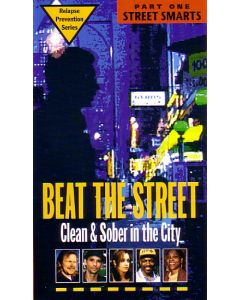 Beat The Street Part 5 Making It Happen: Work, Money, School & Good TimesSpecial Price $149.00 Regular Price $229.00
Beat The Street Part 5 Making It Happen: Work, Money, School & Good TimesSpecial Price $149.00 Regular Price $229.00This 38-minute program focuses on long-term recovery goals related to work, money, school and recreation. It shows how building a satisfying, well-rounded life is the best relapse prevention. Also illustrated are the relapse traps clients run into when dealing with work, money, school and recreation--and how to overcome them. The main teaching points include:
* The importance of getting and keeping work
* Strategies for coping with relapse traps on job
* Dealing with financial stress and money management
* Furthering education (examples from acquiring literacy to going to college)
* Service: Giving back to the community
* Having fun clean and sober
* Reclaiming long-term dreams
Learn More -
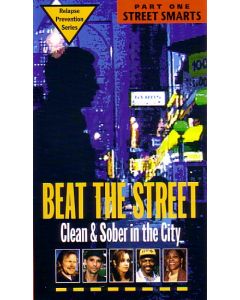 Beat The Street Part 2 Back on The Block: Early RecoverySpecial Price $149.00 Regular Price $229.00
Beat The Street Part 2 Back on The Block: Early RecoverySpecial Price $149.00 Regular Price $229.00This 39-minute program focuses specifically on early recovery, teaching the viewers to prepare for the challenging high-risk situations they will inevitably encounter in their first weeks and months back in the community. Specifically, it covers these essential teaching points:
* Make a housing plan before leaving prison or rehab
* Arrange to live in a safe and sober housing situation
* Avoid living with any active drug or alcohol abusers
* Get rid of any drug supplies or paraphernalia you still have
* Prepare to handle the inevitable triggers and cravings
* Plan ahead to handle running into "get-high buddies" and dealers
* Put together a support system--and use it
Learn More -
 I Love Being CleanSpecial Price $259.00 Regular Price $349.00This fast-paced re-entry program filmed before soon to be released offenders, challenges the ineffective ways of thinking and approaching the world that most, if not all, offenders grapple with. Using anecdotes from his time in the criminal justice system, and from the neighborhood he grew up in, Danny gets to the heart of his audience, and offers solutions for change from within. Learn More
I Love Being CleanSpecial Price $259.00 Regular Price $349.00This fast-paced re-entry program filmed before soon to be released offenders, challenges the ineffective ways of thinking and approaching the world that most, if not all, offenders grapple with. Using anecdotes from his time in the criminal justice system, and from the neighborhood he grew up in, Danny gets to the heart of his audience, and offers solutions for change from within. Learn More -
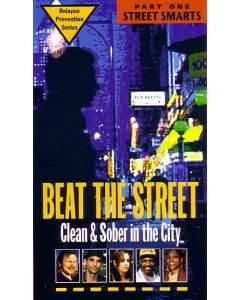 Beat The Street Part 4 Catchin' Feelings: New Ways to Cope with EmotionsSpecial Price $149.00 Regular Price $229.00
Beat The Street Part 4 Catchin' Feelings: New Ways to Cope with EmotionsSpecial Price $149.00 Regular Price $229.00This 40-minute program focuses on coping with the various powerful emotions that come up in early recovery ( and throughout life)--without drugs or alcohol. It teaches the viewer to anticipate and prepare for " emotional danger zones." Topics include:
* Specific tools for dealing with feelings, such as
--"Sit through them" without using
--Get the feelings out: talk, cry, write, find some physical release
-- Find ways to clam and soothe yourself
* Specific emotional "dangerzones," with examples of how to cope with each:
-- Anger
-- Feelings related to racism and discrimination
-- Shame
-- Feelings related to past abuse
-- Guilt
-- Self-pity
-- Feelings stemming from chronic illness, such as HIV
Learn More
